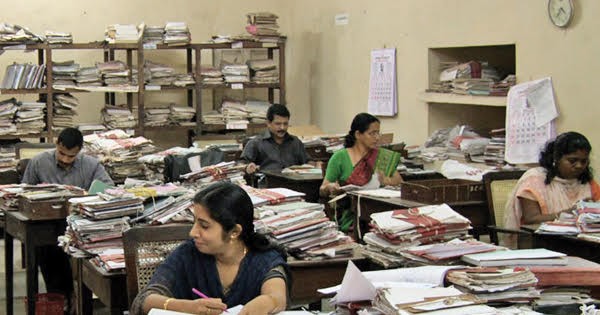Many of our readers, their friends, clients or acquaintances, must have heard this line. Translated into acceptable English from Marathi, it means, ‘not our Section’. In other words, ‘Get lost. You have come to the wrong place’. Many a poor folk takes this response as the final answer. Unfortunately, it is not only the police who mouth this famous phrase. Many litigants also find solace, or rather loopholes, and exploit them. How does that work?
There is what is called jurisdiction. It means the area over which a court of law has the authority to hold sway. The correct appellation is ‘Territorial Jurisdiction’, as opposed to ‘Pecuniary Jurisdiction’. Territorial Jurisdiction demarcates an area where one can file a case. The guiding principle is called ‘the cause of action’, the cause being the legal problem that has been created by someone for the person affected. The origin of the problem is the place that determines the correct court, jurisdiction-wise.

There is a book of rules for lawyers, called The Code of Civil Procedure, 1908. Or simply the CPC. It contains a Section on the subject of jurisdiction. The subject matter has to be of a civil nature, a determination of the rights of the parties, maybe on land ownership, use, or maybe on monies owed.
There is another Code. The Code of Criminal Procedure, 1973. The Code is much older but the revision date holds good. It deals with crime. From simple abusing, to heinous murder, rape or genocide. Here, again, jurisdiction is important.
You be the judge.
A) Mr A buys a refrigerator from a shop in a small town. The shop is a branch of a very big concern having its head office in Mumbai. There is some dispute and the company files a suit in Mumbai. Is it right in doing so?
B) Mr B steals money from an ATM in Mumbai; next, he robs another ATM, of the same bank, in a town in Gujarat. Next, he breaks into an ATM in a village near Delhi. He is caught and found to be a resident of the village. Where can the bank institute criminal proceedings? The village, Delhi, Gujarat or Mumbai?
C) A woman from Telangana is married in Punjab where her husband has a home. The marriage takes place in Punjab. Things sour; she returns to her native place. The husband then files for divorce, in Punjab. Is he right in doing so?
The answer to A) is determined by the convenience to Mr A. Since he bought the refrigerator from a shop in his town, and which town has a branch of the plaintiff, the correct court of jurisdiction will be nearest the town, not Mumbai. The poor man cannot be put to loss of time, money and energy. A recent judgement of the Supreme Court in IPRS vs Sanjay Dalia, makes interesting reading on this point.
The thief, in his escapade from Mumbai to his native muluk, can be charged in any of the places mentioned; but convicted for all robberies on separate counts.
The estranged wife has an option. The husband, in spite of the fact that the marriage took place in Punjab, would have to go to Telangana; if his wife sought him to. This bending of the jurisdictional rule is to ensure less harassment for women. We believe it is correct.
Inter-country jurisdictions have a life of their own and would be too extensive to discuss here. Suffice it to say that the question of jurisdiction is important.
Then, there is the aspect about the court of lowest jurisdiction. It means that one has to approach the subordinate trial courts first, whenever possible, especially in terms of pecuniary jurisdiction. For example, the Bombay High Court now entertains suits of over Rs1 crore. For less than that, one needs to approach the city civil court. Similarly, for criminal matters, different courts have varying authority, depending on the gravity of the crime.
So, check the jurisdiction first. Do not rush to the High Court, no matter what the advice. You will be asked to take your papers elsewhere.
COURTESY: MONEYLIFE
Join LAWyersClubIndia's network for daily News Updates, Judgment Summaries, Articles, Forum Threads, Online Law Courses, and MUCH MORE!!"
Tags :Others

















